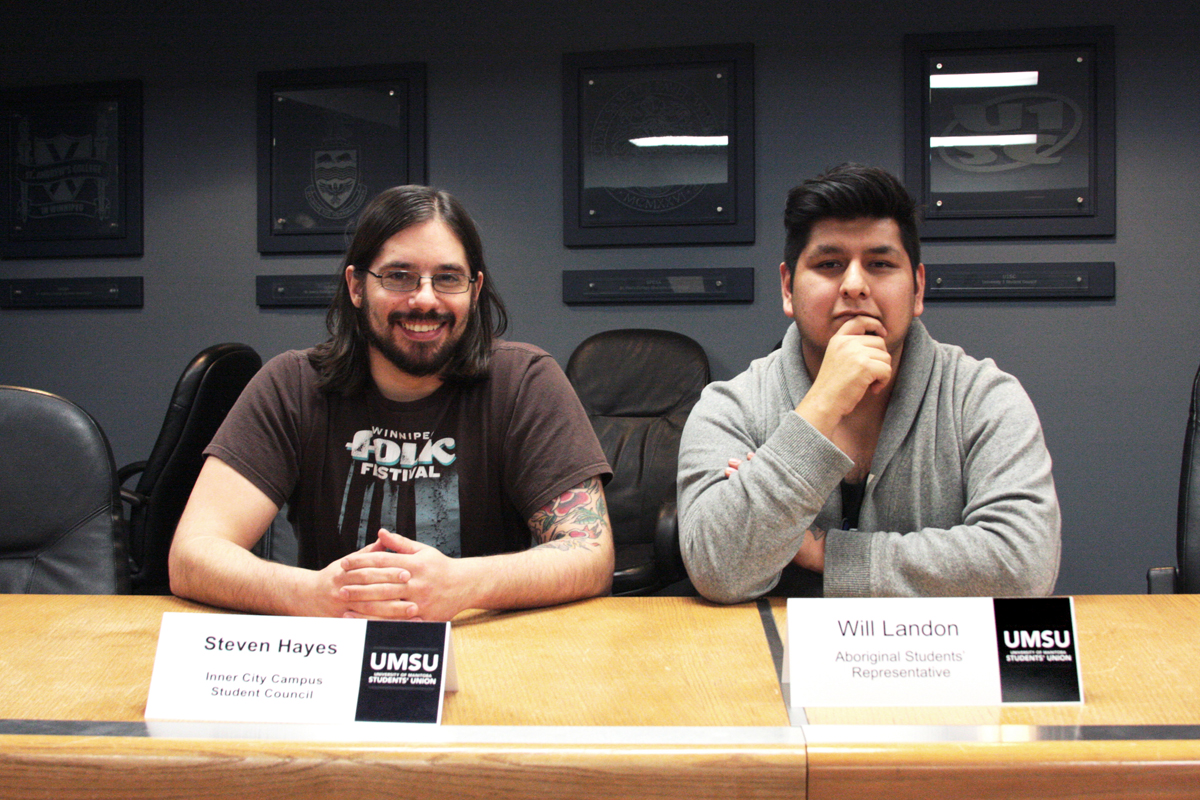In a recent news article in the Manitoban, the topic of creating a new racialized student representative came up once again. I have written on this topic before, in an article entitled “Don’t Divide by Race.” In that article, I described my concern with a position that could potentially divide students into two groups, and possibly exclude students from being eligible to run simply due to their race. It is possible that as this new position is defined it could exclude students who are white.
While the specifics of this issue may be new, the deeper meaning is old. The struggle against racism and oppression has always invoked thoughts of the role of the individual, and whether we are defined by the choices we make or the circumstances of our birth.
In the darkest days of segregation in the United States, the concept of individuality held no meaning. African Americans were condemned from birth to a second-class life. Their humanity and freedom was denied. No matter who they were inside, no matter what values they held in their hearts or dreams they had in their souls, they were judged solely by the colour of their skin.
Through years of struggle America emerged from this dark chapter of its history.
Had it not been for Martin Luther King Jr. and the courage of countless African Americans, the civil rights movement might have failed. But we must not forget that it was also the efforts of countless other Americans, of all backgrounds, whether in the joining of marches or the ending of unjust laws, that led America towards a brighter day.
We must also remember the civil rights movement was not about giving extra rights to African Americans. The civil rights movement was about giving every individual the same rights. The right to vote, to attend the school of their choice and enjoy economic freedom: these were the rights that were fought for.
The idea of creating a racialized student representative comes from good intentions. Racism still exists, though it is receding in many parts of our world. The desire to end injustice is deep in the hearts of many people, and it is finding expression on our campus. The question is not about the intentions of those who wish to create this position; the question is whether the end results will be helpful or harmful. I believe that even when our intentions are good, the results of seeing people through the prism of a group identity rather than as a unique individual can have harmful consequences. Dividing people into groups always carries the risk of fostering animosity and conflict.
It is dehumanizing to define someone solely by their race. Think of your own circle of friends. You probably hang out with people of many different backgrounds. Do you see them for their race, or do you just see them as a human being and as a friend?
The only thing we all have in common is that each of us is unique. In order to have a more equal and just world, we must respect and accept our uniqueness, rather than forcing people to fit a specific label.
A difficult choice now awaits those on UMSU council. It is understandable people would not wish to oppose a position that is stated as seeking to reduce or bring attention to racism. On the other hand, it is also difficult to vote for a position that may very well contradict its stated goal by excluding people based on their racial background.
There is another option. This issue can be brought before the students, and they can make the choice. An issue that is as potentially divisive as this could have profound implications, and everyone should have a chance to be heard. UMSU elections provide for a referendum process, and this would give students the chance to hear both sides of this issue and make the final decision themselves.
There can be a fine line between attempting to correct historic wrongs and unwittingly creating new injustices. It is undeniable that people of colour have faced disadvantages in the past, and in some cases still do today. However, it is also undeniably true that it is wrong to create a position that could exclude people because of their background.
I am the son of a white mother and a black father. When my parents were married, they were often subjected to dirty looks and even verbal attacks in public. On a few occasions, I have had racist language directed at me. Even in my own short lifetime, things have improved dramatically. I do not oppose this position because I am in denial that racism still exists. I oppose this position because I don’t believe we have made advances as a society by focusing on racial differences. The strongest antidote to racism is the recognition of our individuality.
Nobody in our university today is responsible for the injustices of the past. To seek to retroactively fix those injustices by creating positions that exclude rather than include is a step in the wrong direction. This may very well be one of those times where a positive motivation does not lead to a positive result. As Martin Luther King Jr. said, “Injustice anywhere is a threat to justice everywhere.” Though the injustice of excluding some students from this new position may seem small, I do not feel it is possible for small injustices to lead the way to justice.
If you feel as I do about this issue, I urge you to contact your UMSU representative and ask them to give all students the chance to have their voices heard on whether or not we should have a racialized student representative.
Spencer Fernando is the Comment Editor of the Manitoban.





“Though the injustice of excluding some students from this new position may seem small, I do not feel it is possible for small injustices to lead the way to justice.”
So I guess UMSU should get rid of the Aboriginal Students’ Representative because it excludes everyone who isn’t aboriginal (RACISM!). And get rid of the LGBTT* Rep because it excludes straight and cis students (STRAIGHTPHOBIA!). And they definitely need to abolish the Women’s Representative position because it excludes every student who just happens to have been born male (MISANDRY!).
@Rob: Yes, that is absolutely correct. I was always offended by the notion that I required extra representation within a students’ union because of my sex. “Othering” oneself is no way to resolve being “othered” by someone else.